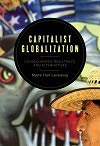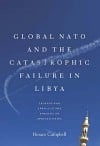Imperialism
“Ultimately,” said Miguel Rivera, a soft-spoken man in his late twenties, “we are a family that has dedicated ourselves to helping the people with their needs and defending their rights. But in the process of denouncing the consequences of mining especially, I think there are people that will be your enemies.”…The Canadian-owned Pacific Rim Mining Company has attempted to exploit a gold mine at El Dorado for the better part of a decade, and has been repeatedly thwarted in its efforts….Now, apparently, the company’s local allies have taken a more violent approach to removing that opposition. | more…
Bernd Greiner, War Without Fronts: The USA in Vietnam, translated by Anne Wyburd and Victoria Fenn (New Haven: Yale University Press, 2009), 518 pages, $35.00, hardcover.
In late 1970, prompted by the debate over the exposure of U.S. atrocities in the village of Mỹ Lai, an anonymous GI wrote a letter to Army Chief of Staff William Westmoreland, claiming to have witnessed hundreds of acts of terrorism by U.S. soldiers during Operation Speedy Express. The campaign, intended to reclaim portions of the Mekong Delta, purportedly killed over ten thousand enemy but seized only seven hundred weapons. | more…
On June 4, 2009, U.S. President Barack Obama gave a key foreign policy speech in Cairo, Egypt. He advocated new, positive relations between the United States and Muslim countries, focusing on relations with the Middle East. He also mentioned establishing new relations with Iran: “There will be many issues to discuss between our two countries, and we are willing to move forward without preconditions on the basis of mutual respect.”…But this new promise “to move forward without preconditions” should be viewed in the wider context of continuous economic and military pressures on Iran and on the entire region of the Middle East. | more…
William I. Robinson, Latin America and Global Capitalism: A Critical Globalization Perspective (Baltimore: The John Hopkins University Press, 2008), 412 pages, $55.00, hardcover.
Latin America and Global Capitalism delivers a scathing indictment of neoliberal globalization from an explicitly anti-capitalist perspective. Its scope is theoretically and empirically ambitious, beginning with a wide-ranging treatment of structural shifts in global capitalism since the early 1970s, before turning to rigorous examination of a range of themes in Latin American political economy in light of these global changes. Robinson then brings these threads together with an argument that neoliberalism entered its twilight phase in the region beginning with the recession of the late 1990s and early 2000s, as extra-parliamentary mass movements concomitantly exploded onto the scene and a variety of self-described left governments took office. The focus then tightens, with conjunctural analyses of the current upsurge in indigenous revolts, the immigrant rights movement in the United States, and the complicated and contradictory processes of the Bolivarian Revolution in Venezuela. | more…
My copy of The Mythology of Imperialism, the 1973 paperback that sold for $2.75, has lots of notes in the margins. They’re excited notes, not always comprehensible now, from the first course I ever taught, a small unofficial seminar on literature and imperialism. I’ve lost the syllabus, but I remember that we read Raskin’s books: Kipling, Conrad, Forster, and Orwell. I’m not sure I would have had the idea, or the courage, to follow that syllabus in my second or third year of graduate school teaching if The Mythology of Imperialism hadn’t made its miraculous, incandescent appearance. I certainly wouldn’t have known which writers to teach, or for that matter how to start talking about them. This was before Edward W. Said’s Orientalism appeared in 1978, before the academic field of postcolonial studies had been invented. There must have been more advanced people out there — it sometimes seemed to me that everybody at Harvard was more advanced than I was — but if they had figured out why and how imperialism mattered to us, they weren’t raising their hands and making speeches about it in any of the classes I took. | more…
One of the main accomplishments of the Israeli government’s bombing and invasion of the Gaza Strip last winter was to inspire new vitality within leftist and peace groups in solidarity with the Palestinian struggle for justice and liberation. This wave of activity has continued after the supposed ceasefire, with demonstrations and direct actions from New York to Los Angeles, Paris, Jaffa, and Tel Aviv. Most noteworthy has been a coming out of sorts of an increasingly large and vocal segment of the Jewish world that is not only opposed to the Israeli government’s wars and military occupations, but critical of Zionism itself. | more…

This book examines the historical record of globalization and restores agency to the capitalists, policy-makers, and politicians who worked to craft a regime of world-wide exploitation. It demolishes their neoliberal ideology – already on shaky ground after the 2008 financial crisis – and picks apart the record of trade agreements like NAFTA and institutions like the WTO. But, crucially, Hart-Landsberg also discusses alternatives to capitalist globalization, looking to examples such as South America’s Bolivarian Alliance for the Americas (ALBA) for clues on how to build an international economy based on solidarity, social development, and shared prosperity. | more…
The Review of the Month entitled “The U.S. Imperial Triangle and Military Spending” by John Bellamy Foster, Hannah Holleman, and Robert W. McChesney (Monthly Review 60, no. 5 [October 2008]) carries on a valuable MR tradition. Monthly Review is one of the few voices on the left that has emphasized the necessity, from the point of view of capitalism, of this kind of military Keynesianism. Chalmers Johnson and Seymour Melman, who have written extensively on this issue, have tended to argue that other forms of government spending, a renewed New Deal, is possible. | more…
Vijay Prashad, The Darker Nations: A People’s History of the Third World (New York: New Press, 2008), 384 pages, paper, $19.95.
Vijay Prashad’s The Darker Nations opens with the assertion that the third world was not so much a place as a project. His goal is to provide an account of the anticolonial and nonaligned movement rather than a full history of the under-developed world in the last half of the twentieth century. However, in this remarkable book, he does both. Born in the wake of the upheavals of the Second World War, the third world movement that took form at the Bandung Conference in 1955 was championed by the likes of Nehru, Nasser, Tito, Sukarno, and Nkrumah. Its leaders collectively called for national independence, economic development, and Cold War nonalignment while basing themselves on the support of millions of followers in the under-developed nations. | more…

by Salim Lamrani; Prologue by Wayne S. Smith. Foreword by Paul Estrade. Translated by Larry Oberg MR Admin
In this concise and sober account, Salim Lamrani explains everything you need to know about U.S. economic sanctions against Cuba: their origins, their provisions, how they contravene international law, and how they affect the lives of Cubans. | more…

In this incisive account, scholar Horace Campbell investigates the political and economic crises of the early twenty-first century through the prism of NATO’s intervention in Libya. He traces the origins of the conflict, situates it in the broader context of the Arab Spring uprisings, and explains the expanded role of a post-Cold War NATO. | more…
The United States is unique today among major states in the degree of its reliance on military spending, and its determination to stand astride the world, militarily as well as economically. No other country in the post–Second World War world has been so globally destructive or inflicted so many war fatalities. Since 2001, acknowledged U.S. national defense spending has increased by almost 60 percent in real dollar terms to a level in 2007 of $553 billion. This is higher than at any point since the Second World War (though lower than previous decades as a percentage of GDP). Based on such official figures, the United States is reported by the Stockholm International Peace Research Institute (SIPRI) as accounting for 45 percent of world military expenditures. Yet, so gargantuan and labyrinthine are U.S. military expenditures that the above grossly understates their true magnitude, which, as we shall see below, reached $1 trillion in 2007. | more…


